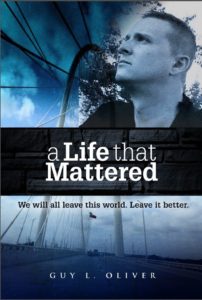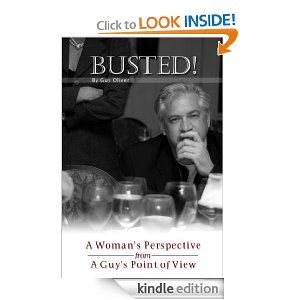As humans, we are drawn to the light; we are not equipped to cope with the darkness indefinitely, and those who remain too long there do so at their own peril. I can honestly say that the days following the second anniversary of my son’s accident were some of the most difficult I encountered.
Over the course of that two-year period the initial numbness gave way to intense pain, which was supplanted by a dull aching, which finally yielded to a sense of despair. As the death throes of denial finally began, they gave way to the birth pangs of acceptance. We often think that if the bereaved could simply accept what is, the pain would somehow magically vanish. The truth is, though, it is merely transformed.
Somewhere deep inside the void is never filled, and as we come to terms with the permanence of a soul now missing from our lives we are forced to face the pain of the harsh reality. Like the molting of a colorful reptile, the dullness of our grief gives way to a renewed brightness. But in the shedding of our old skin there is the pain as it gives way to the growing sense that it is time to live again.
The darkness and grief do eventually give way to the light, but only if we are determined to choose life—and the choice is neither free nor easy and I was exhausted. It was this very fatigue, though, that worked in my favor—a blessing that felt nothing of the sort in the moment.
No longer able to express my grief, the shroud gradually lifted a little at a time. Little by little, beginning with tiny flecks as though I were seeing through multiple veils, being slowly lifted one at a time, the more normalized world I had left—though it felt as if the world had left me. With each passing week, life began to seem a little more as it should.
And in the following months I felt as if I were walking the journey alone because, ultimately, it was my journey. It was my path, and no one could walk it but me. I largely withdrew and tried very hard to do the very hard work of recovery—and this is the point that the God of my faith whom I repeatedly cursed at the journey’s outset stepped in.
Not everyone believes in a God, some poorly defined benevolent force who spoke the Universe into existence yet somehow bothers with us mere mortals at his feet, who, by our own admission, are unworthy of his attention. But most of us believe in something. The human mind, being what it is, invents a framework to make sense of life as we experience it.
And when the world suddenly doesn’t make sense anymore, we fall back to that childish notion of the thing in which we ultimately believe. In the beginning I shook my fist at the thing I call God, but like a loving father he came to me when I was finally ready and gently nudged me onto the path of recovery. He didn’t carry me so much as he followed me, allowing me to take each step through my own doing, continually prodding me to take the next, and pointing to the light.
My son. So many parallels, his life and mine.
Like my son after his incarceration, I gradually learned to walk again. This part of the story is that of the recovery of a grieving parent. But when a parent loses a child, the gaping whole left in his heart is not the only void that is created.
There are siblings and friends and schoolmates, each of whom suffer equally, yet in their own way. For some it is the empty chair at the dinner table. For others it is the classmate who no longer arrives. For still others it is one less present to exchange on holidays and other special occasions.
For me, it was the lost opportunity, the unrealized potential of reuniting father and son. The fact that there would be no wedding for him and no grandchildren from him. He would not be there on my deathbed to tell me goodbye. I would instead have to say goodbye to him a thousand times; in a chapel, on a cliff overlooking the water, after waking from a sense of his presence, or from the side of the road where his own journey on this planet ended.
For my oldest daughter, who was close to him, it was the practice of avoidance.
“I had the luxury of keeping myself busy. Among other things, I felt I had to be there for mom. I threw myself into the funeral arrangements, creating a presentation and preparing a eulogy. I bought an engagement ring for Donna, tending to the unfinished business of my brother’s relationship to her. Ashley and I went to a craft store, and bought the things to make wreaths for Tim and Donna.
On and on it went. I found ways to stay busy and pushed myself into a state of hyperkinetic activity. Anything to avoid really sitting and thinking about the reality of what had happened. There were moments, though, during the funeral preparation.
As I sorted through the images of Tim and Donna and his friends, I felt as though he hadn’t left at all. It was a very real sense of our time together, almost in a physical way. Phantom brother moments I call them. Those were hard and it motivated me to busy myself further.”
And this is how some people cope. They choose not to take the event off the shelf and turn it over in their minds or embrace it—the pain being something too fearful to bear. For my youngest daughter it was the luxury of emotional distance, tinged with the remorse of not having quite patched things up with him, flanked by a knowing resignation and relief that what she knew was coming finally materialized.
“When I first heard the news I was devastated. I was at work and had to be sent home. In that moment I wished I had made things right with him, but I was also relieved for mom. He could never hurt her again. He could never disappoint us again. I also expected for a long time his untimely passing, because he lived a reckless lifestyle. Even after the drugs, he drove too fast and didn’t pay attention to the road. His driving was just like the rest of his life. He thought he was invincible.
More than anything I hated watching you and mom suffer. I was very quickly OK with the turn of events, the regret notwithstanding. Watching you and mom, though, it was crushing, knowing I could do nothing to take the pain away.”
In talking with his friends it was simply the absence of someone they loved, the person who was so much a part of their lives who is now, quite simply, gone.
I mentioned early on in this chapter that this book is not meant to be an instruction manual on grief, but instead intended to underscore the gravitas each person brings to bear in this world. When that person is lost, there is grief, which comes in many forms, but the focus is often the grief itself, and how those left behind cope with it. What’s often overlooked in the narrative of loss is the why of grief.
We grieve because that person mattered to us. We each choose to have people in our lives for our own reasons. I chose not to have Tim in my life for a brief time, because of the destruction he was wreaking at that time in his own life. But because he was my son, I never stopped loving him. I wouldn’t have been able to stop if I had wanted to. As parents we are hard wired to love our children, but we also—most of us—draw boundaries. And I was fortunate to briefly welcome him into my life again.
His parents grieved because we brought him into the world with such optimism. His sisters grieved because of the fixture he was in their lives. His friends grieved because of what he brought to their life.
And you are no different. You touch countless people in your life, often without any awareness on your part, and if you were suddenly gone, your absence would surely be felt. This is the greatest aspect of this gift called life. The opportunity to touch others.
Each heartbeat, every breath, and every individual you encounter is an opportunity to touch the world and, as such, you matter.
I earnestly ask you not to squander the present opportunity, for the next one is not promised.


